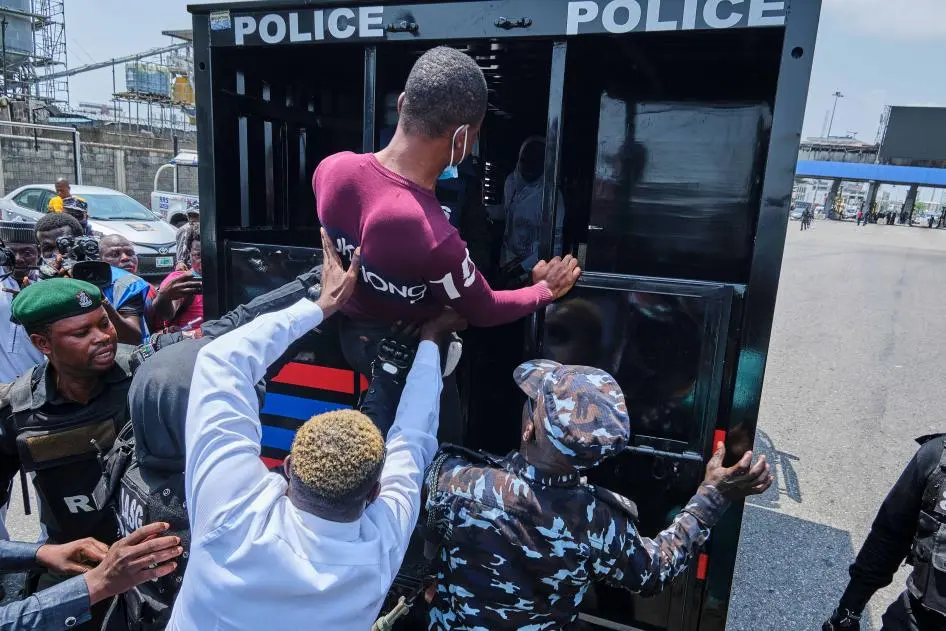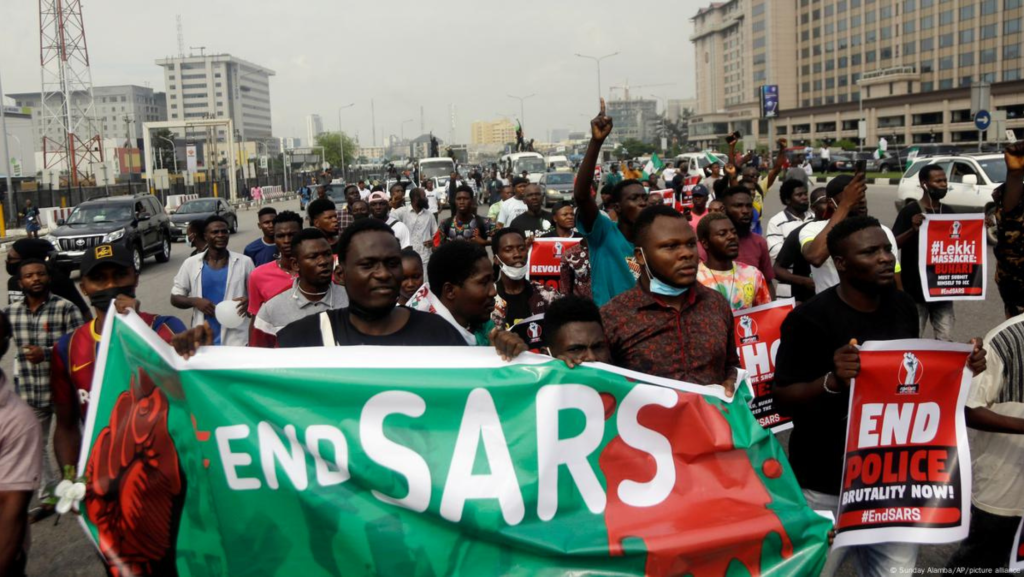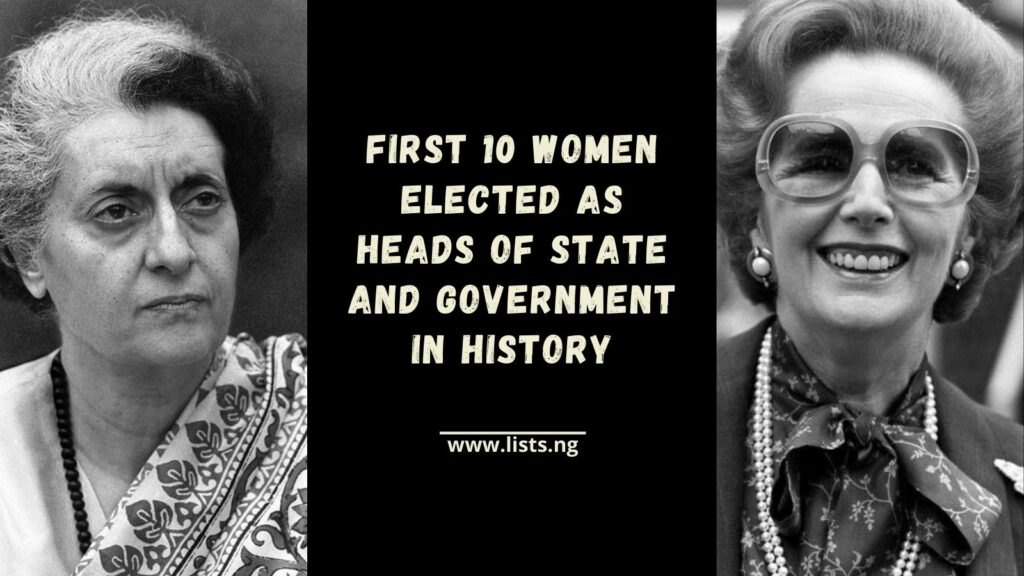Five years after the #EndSARS protests erupted across Nigeria, the core demands for justice, police reform, and accountability remain largely unmet. The movement began in early October 2020, sparked by a viral video of police brutality in Delta State, and peaked with the Lekki Toll Gate massacre on October 20, where soldiers fired on unarmed protesters singing the national anthem. Amnesty International documented at least 12 deaths that night, yet the government’s response has delivered little beyond rhetoric.
As of 2025, reports of extortion, brutality, and impunity persist, with the Nigeria Police Act 2020 and recent bills like the Police Institutes Establishment Bill offering promise on paper but faltering in execution. Nigerians are still pushing for these five key issues, amid deepening distrust in a system that prioritizes control over change.
1. Freedom for Wrongfully Detained Protesters

The 2020 demands included the immediate release of those arrested for peacefully protesting police abuses, many held without charges or subjected to torture. As of 2023, Amnesty International reported 15 such protesters names like Segun Adeniyi, Onuorah Odih, and Daniel Joy-Igbo, still detained without trial in Lagos facilities like Kirikiri and Ikoyi prisons. By 2025, while some releases have occurred amid international pressure, many from #EndSARS and follow-up #EndBadGovernance actions remain in custody, facing trumped-up charges like arson or unlawful assembly.
This pattern of arbitrary detention is a calculated tool to suppress dissent, leaving families shattered and the public wary of any call to action. Without unconditional releases, the right to protest feels like a trap.
2. Accountability for Police Killings
Protesters demanded prosecutions for those behind the deaths, particularly at Lekki, where at least nine unarmed youths were gunned down. The 2021 Lagos Judicial Panel labeled it a “massacre” and implicated the military, but no convictions have followed. Families, like those of victims documented by Amnesty, wait in vain for trials, while panels’ recommendations gather dust and compensation trickles to a few. Ib 2024, the ECOWAS Court ruled Nigeria guilty of violations at Lekki, ordering fresh investigations and reparations, but enforcement in 2025 remains elusive, with no perpetrators held accountable.
3. Independent Oversight of Police Actions
A central call was for an impartial body to probe and punish abuses, ensuring units like SARS couldn’t reincarnate unchecked. The 2020 creation of SWAT was decried as a rebrand, not reform, and no independent oversight has materialized. The ECOWAS Court’s 2024 judgment reinforced this, condemning excessive force and mandating structural changes, yet 2025 reports show ignored directives and persistent clampdowns on memorials.

4. Proper Training and Vetting of Officers
Demands targeted psychological evaluations and retraining to weed out abusive mindsets, especially for ex-SARS officers. Young men with laptops or phones still face extortion at checkpoints, echoing pre-2020 horrors. No comprehensive vetting has occurred; many officers were simply reassigned, and 2025’s Police Institutes Bill promises upgrades but lacks timelines for psych evals or cultural shifts.

5. Adequate Police Funding to Reduce Corruption
Low pay was flagged as a root of extortion, with calls for salary hikes to foster professionalism. Yet, police top bribery charts: UNODC’s 2025 data shows officers accounting for 35.7% of all bribes paid in Nigeria, often as low as ₦500 at routine stops. The 2025 Nigeria Police Trust Fund Amendment boosts funding for welfare and gear, but uneven implementation leaves officers underpaid and over-reliant on grafts. This cycle doesn’t just erode trust—it weaponizes poverty, turning protectors into predators.
Has Anything Changed?
In essence, no—not substantively. SARS’s disbandment was a headline win, but abuses migrated to other units, with insecurity worsening amid banditry and kidnappings in 2025.
#EndSARS created something defiant in the heart of Nigerian youths, one that’s now channeling outrage into civic tools like abuse-reporting apps and voter drives. As the 2027 elections loom (or potentially November 2026), the question remains: will Nigeria honour the demands of its people, or will its youth’s resilience face another unfulfilled promise?
Follow Lists NG on Facebook, Instagram, X, and TikTok for more.



